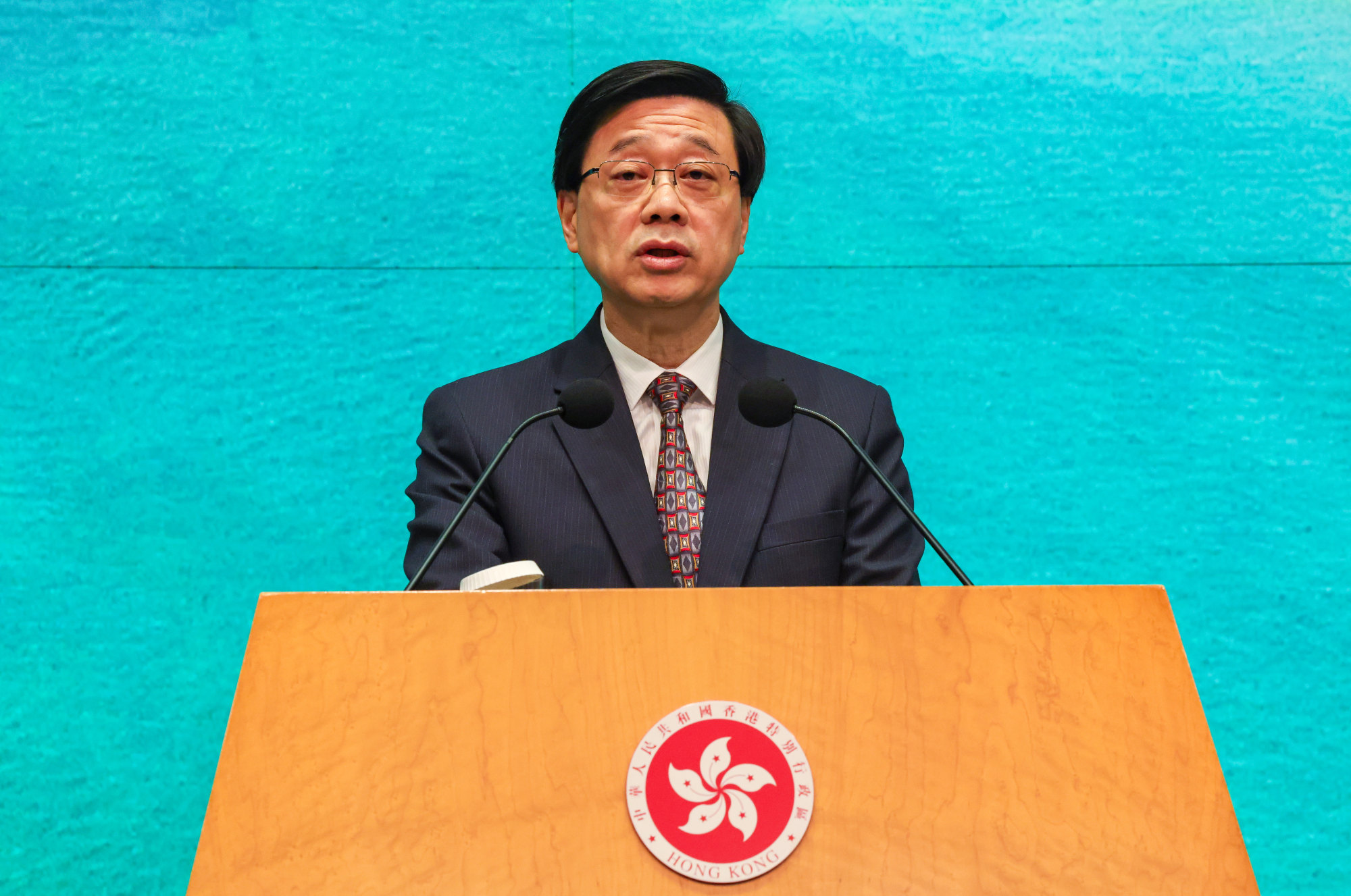
Explain Hong Kong’s Article 23 to show government has ‘nothing to hide’: scholars urge clarity on security law to avoid ‘conspiracy theories’
- Consultation period for home-grown national security legislation will begin in early February, according to sources
- Hong Kong Bar Association chairman Victor Dawes urged authorities to carry out a ‘transparent and thorough’ consultation exercise
A government source said the Security Bureau was hoping to start the consultation as soon as possible as it expected attempts in the international and local community to “smear” the legislation.
“The consultation will not be in the format of a white bill,” the source said, referring to an arrangement in which the full draft of legislation is made available to the public to canvass their views.
“We will do our best to promote the legislation to the public and hope it will be widely accepted. Relevant publicity work and consultation will begin earlier, before the Lunar New Year holiday.”
Overseas lawyers ‘will need approval to handle cases under new Hong Kong security law’
The first attempt in 2003 to pass the controversial Article 23 bill failed to secure majority support in the legislature after half a million people took to the streets in protest. Authorities were criticised for foregoing a white bill consultation.
As the Lee administration gears up for a second attempt at passing the legislation after 20 years, Hong Kong Bar Association chairman Victor Dawes urged authorities to carry out a “transparent and thorough” consultation exercise to “refute any suggestion that our government was not prepared to listen”.

Lau Siu-kai, a consultant at semi-official Beijing think tank the Chinese Association of Hong Kong and Macau Studies, said authorities could achieve transparency by clearly explaining the legislative purpose, rationale and necessity of the bill as well as for each provision.
“It will avoid unnecessary speculation and conspiracy theories, and prove that the government has nothing to hide,” said Lau, who was head of government think tank the Central Policy Unit and had advised former chief executive Tung Chee-hwa during the 2003 legislation attempt.
National security a top priority for Hong Kong leader John Lee in 2024
Simon Young Ngai-man, a law professor at the University of Hong Kong, agreed that it was important for the public to be able to read the proposals and understand their rationale, and suggested the consultation documents and channels be made available to all.
“Once a draft bill becomes available, the government should consider holding focus group meetings with people likely to be able to provide useful comments on the bill, such as the legal professional bodies, other legal practitioners and bodies, legal academics, and other interest groups,” Young said.
“Ideally, this should all be done before the proposals are finalised and put before legislators.”
National security: what is Article 23 and why is it back in the spotlight?
But Ronny Tong Ka-wah, a senior counsel who sits on the government’s key decision-making body, the Executive Council, doubted the need to run an all-out public engagement effort as the bill would involve “complex technical details” that most residents would find difficult to comment on, such as definitions of state secrets and local political organisations in the Hong Kong context.
“It’s not [as easy as] picking who’s the prettiest in a beauty pageant,” he said. “It involves technical issues that are quite complex, such as economic sanctions, investment restrictions and online issues. These issues cannot be addressed by simply asking ordinary citizens to say whether they should be done or not.”
He pointed to Britain’s National Security Act, which came into force last month, as an example, saying the exercise might just need a dedicated website to canvass opinions for one to two months.
Hong Kong’s own national security law on the cards for 2024: legislative agenda
Political scientist Lau also cautioned that any consultation approach was unlikely to silence the critics “given that some people in Hong Kong are against Article 23 local legislation no matter what”. He advised authorities to create favourable public opinion by highlighting “non-conventional” threats on the financial, espionage and infiltration fronts.
“If public awareness of and alertness to national security threats are boosted, external misinformation and badmouthing can be countered more effectively and public support for the legislation can be better secured,” he said.
The pending legislation will be one of two key topics in the chief executive’s question and answer session with lawmakers on Thursday.
Lee on Tuesday said he expected to canvass views on the connections and compatibility between the local national security law and the Beijing legislation.
Additional reporting by Jess Ma


